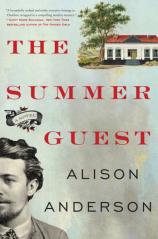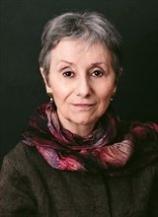Reading Group Guide
Discussion Questions
The Summer Guest

1. What should be the priorities for a translator of great literature? What are the various challenges of such a task?
2. Consider the three women at the center of the novel: Katya Kendall, Anastasia Harding and Zinaida Mikhailovna Lintvaryova. In what ways are they similar or different? How is Zinaida valuable to Katya and Ana?
3. For a writer, what is valuable in the three different kinds of writing represented here: fiction, journal writing and translation?
4. Anton Pavlovich claims a number of times that writing for him is not about “inspiration and electricity” but simply a way to pay bills. What might influence him to say such a thing? Can great art result from practical motivations?
5. What makes each of the Lintvaryova sisters --- Zinaida, Elena and Natasha --- unique, complex and important to the story?
6. What is the complex nature of the relationship between Zinaida and Anton Pavlovich? What does each receive from the other?
7. Of what importance to the story and her character is Zinaida’s blindness? In what particular ways might it influence her relationship with Anton Pavlovich?
8. Speaking with Zinaida about how women are portrayed in literature, Natasha criticizes Leo Tolstoy for writing only “of fallen women and ingénues.” What is the novelist’s responsibility toward such cultural or political issues? In what ways do such representations limit a novel or not?
9. After her divorce, Ana takes on the daunting challenge “to explore her solitude.” What might it mean to do such a thing? What are the potential risks and benefits? What does it take to turn solitude, as Zinaida struggles to do, “from an enforced exclusion to a welcome introspection”?
10. Zinaida, a successful physician before her illness, observes that though her married cousins and friends believe themselves to be happy, “their illnesses and complaints tell a different story.” What’s the relationship between emotional well-being and the health of the body? What is it about traditional marriage that Zinaida believes is problematic?
11. Though Zinaida is “truly honest” in her journal, she acknowledges that it is still “a distorting mirror.” What might she mean? What is the potential value of such dedicated journal writing?
12. Zinaida claims that her blindness has caused her to learn greater sensitivity to sound and smell and that this brings her “closer to an essence of life.” What might she mean?
13. Despite her training in medicine and a pragmatic and rational family, Zinaida believes her illness has shown her “the resources of the spirit’s more inexplicable manifestations.” How does this manifest in her thoughts and actions?
14. In one of Zinaida’s first journal entries she wishes she “knew the notation of birdsong,” that it could later be played by her brother Georges on the piano. Despite the obvious differences, in what ways might music and literature be similar?
15. What is powerful about the landscape of Luka? Of what particular importance is it to Anton Pavlovich?
16. What is added to the novel by the inclusion of the contemporary political unrest of Ukraine?
17. Anton Pavlovich claims that instead of inspiring it, “love makes a muddle of creativity.” In what ways might this be true or not?
18. How is it appropriate or not that Ana’s full name, Anastasia, means resurrection?
19. Zinaida and Anton Pavlovich have a profound conversation about whether one should “forge life,” enacting individual will or “allow fate” and “preserve immense respect for the…magic of life.” What’s a proper balance between these two approaches to living?
20. Natasha argues that art is “the force of life” and triumphs over death. Zinaida counters that art doesn’t help the poor and “death always wins.” What is the relationship between art and mortality?
21. What has Ana gained from her experience translating the journal, reading about Chekhov and traveling to the location of his summer visits?
The Summer Guest
- Publication Date: May 24, 2016
- Genres: Fiction, Historical Fiction
- Hardcover: 400 pages
- Publisher: Harper
- ISBN-10: 0062423363
- ISBN-13: 9780062423368








